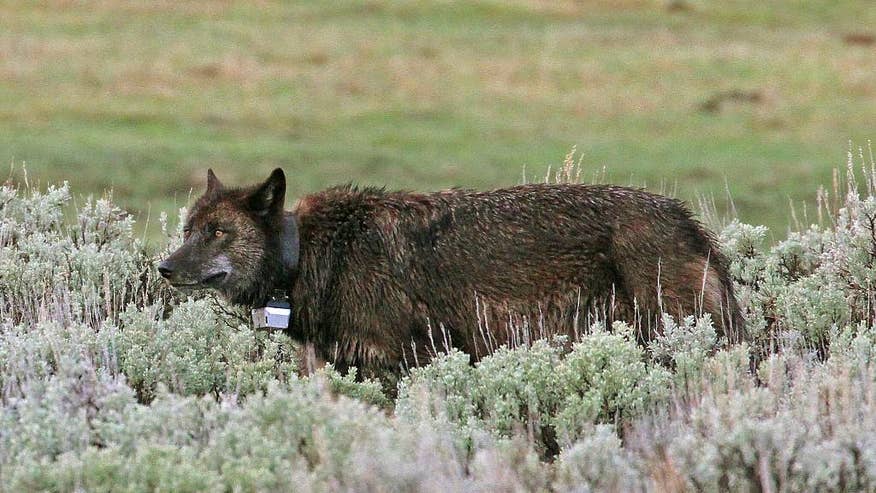Associated Press
BILLINGS, Mont. – Researchers at
Yellowstone National Park have lost their license for a set of radio
frequencies used to track more than 100 radio-collared wolves and elk. But park officials said Thursday their scientific work has continued with the cooperation of the new license holder.
Yellowstone biologist Doug Smith said new licensee NorthWestern Energy is letting researchers use the frequencies, meaning the park can avoid more than $450,000 in estimated costs to restart the program.
The frequency license used by the park accidentally was allowed to expire several years ago. It had been under the name of Ed Bangs, a researcher with the U.S. Fish and Wildlife Service. When Bangs retired in 2011, it was never renewed, park officials said.
After NorthWestern acquired the frequencies to remotely control its power distribution system, interference began in radio signals from collared wildlife in September, Smith said.
The interference continued through the winter and into the spring, but researchers still could track the animals from the air during monitoring flights. "It never stopped our research," Smith said. "You're listening for a beep and there's a ton of static over it, but you can do it. It's harder to do because you had to fly more and get closer to the animal."
Park service emails obtained by the group Public Employees for Environmental Responsibility show officials were concerned the loss of monitoring data would jeopardize years of science on wolves and the elk herds they hunt.
While that didn't happen, the group's executive director, Jeff Ruch, said the park's radio frequency troubles suggested confusion among officials and researchers. "The park is giving approval to projects that may impede their ability to monitor wildlife," he said.
Restarting the program would have required researchers to capture the wolves and elk already wearing collars and replace the devices with ones that operate on a different frequency. That was avoided thanks to NorthWestern, park officials said. Yellowstone technology chief Bret De Young said the company was gracious in accommodating the park's needs.
The arrangement is only temporary. Radio collars placed on animals in coming years will use new frequencies under a license that Smith recently acquired.
source
Yellowstone biologist Doug Smith said new licensee NorthWestern Energy is letting researchers use the frequencies, meaning the park can avoid more than $450,000 in estimated costs to restart the program.
The frequency license used by the park accidentally was allowed to expire several years ago. It had been under the name of Ed Bangs, a researcher with the U.S. Fish and Wildlife Service. When Bangs retired in 2011, it was never renewed, park officials said.
After NorthWestern acquired the frequencies to remotely control its power distribution system, interference began in radio signals from collared wildlife in September, Smith said.
The interference continued through the winter and into the spring, but researchers still could track the animals from the air during monitoring flights. "It never stopped our research," Smith said. "You're listening for a beep and there's a ton of static over it, but you can do it. It's harder to do because you had to fly more and get closer to the animal."
Park service emails obtained by the group Public Employees for Environmental Responsibility show officials were concerned the loss of monitoring data would jeopardize years of science on wolves and the elk herds they hunt.
While that didn't happen, the group's executive director, Jeff Ruch, said the park's radio frequency troubles suggested confusion among officials and researchers. "The park is giving approval to projects that may impede their ability to monitor wildlife," he said.
Restarting the program would have required researchers to capture the wolves and elk already wearing collars and replace the devices with ones that operate on a different frequency. That was avoided thanks to NorthWestern, park officials said. Yellowstone technology chief Bret De Young said the company was gracious in accommodating the park's needs.
The arrangement is only temporary. Radio collars placed on animals in coming years will use new frequencies under a license that Smith recently acquired.
source



No comments:
Post a Comment